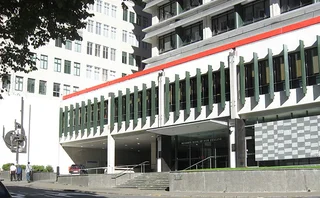
IMF and Fed plan bailouts for emerging markets
The International Monetary Fund has agreed to step up its short-term lending programme to emerging market nations in order to ward off the spreading debt crisis.
The new Short Term Liquidity Facility (SLF) announced yesterday will allow countries to borrow up to 500% of their IMF quotas - the normal limit is 100% a year. The dollar amount would vary from country to country, but, for example, the Czech Republic would have access to up to $6.1 billion, Chile to $6.4 billion and Poland to $10.2 billion.
Not all emerging economies will be able to draw on the new facility - the IMF said that it would be limited to nations "with a track record of sound policies". However, unlike other IMF loan programmes, SLF loans would be unconditional.
While there will be limits on how much individual countries can borrow, there is no overall ceiling for the SLF - save the fact that the IMF has a total of $201 billion in "loanable funds" as of August 28. The Fund will review the facility once half of this has been drawn. The loans carry the same charges as normal IMF loans and will have three-month maturities. Borrowers will be able to draw on the SLF three times in the next twelve months.
Managing director Dominique Strauss-Kahn that the last few weeks had exposed "a gap in the Fund's toolkit of financial support... most of the facilities are designed for countries that require both financing and policy adjustment. We didn't have any instrument that could be used for short-term lending to countries with a strong track record which are never the less facing pressure on their balance of payments."
Strauss-Kahn added that the IMF had also given emergency loans under a separate scheme to Hungary, Ukraine and Iceland.
Four significant emerging economies, meanwhile, will receive direct support from the US Federal Reserve. The Fed has opened new US dollar swap lines to the central banks of Singapore, South Korea, Brazil and Mexico, allowing them to borrow up to $30 billion each.
See also: IMF, EU and World Bank feed Hungary $25.1 billion bailout
Risk USA: IMF unveils dire global economic outlook for 2009
Only users who have a paid subscription or are part of a corporate subscription are able to print or copy content.
To access these options, along with all other subscription benefits, please contact info@risk.net or view our subscription options here: http://subscriptions.risk.net/subscribe
You are currently unable to print this content. Please contact info@risk.net to find out more.
You are currently unable to copy this content. Please contact info@risk.net to find out more.
Copyright Infopro Digital Limited. All rights reserved.
As outlined in our terms and conditions, https://www.infopro-digital.com/terms-and-conditions/subscriptions/ (point 2.4), printing is limited to a single copy.
If you would like to purchase additional rights please email info@risk.net
Copyright Infopro Digital Limited. All rights reserved.
You may share this content using our article tools. As outlined in our terms and conditions, https://www.infopro-digital.com/terms-and-conditions/subscriptions/ (clause 2.4), an Authorised User may only make one copy of the materials for their own personal use. You must also comply with the restrictions in clause 2.5.
If you would like to purchase additional rights please email info@risk.net
More on Central banks
Global investment outlook: 2026 and beyond
Broadening, steepening and weakening: Franklin Templeton’s top investment ideas for 2026 and beyond
Central bank watch: Biased to ease, for now
A mid-year review of the monetary policy outlook for G10 central banks, India, China and South Korea
Adopt FX code or face regulation, warn central bankers
Global code of conduct must be adopted, Schiavi and Debelle insist
Malaysia central bank: credit reporting could unite Asean markets
Asean Economic Community faces challenges, says deputy governor Muhammad bin Ibrahim
BoE's Carney: liquidity support for CCPs is a 'last-resort option'
BoE governor insists clearing houses must have enough liquidity to cope with default of two big member firms
BoE deputy governor Paul Tucker quits after 33 years
Deputy governor is bound for academia in the US after helping with transition to new Carney regime
Local regulators push for consistent standards across Asean region – Thai SEC interview
Underpinning the integration of regional capital markets is a major concern for Vorapol Socatiyanurak, secretary general of Thailand's Securities and Exchange Commission
New governor signs revised policy target agreement in New Zealand
The Reserve Bank of New Zealand’s policy targets agreement will come into effect on the same day Graeme Wheeler takes over as governor; document includes "stronger focus" on financial stability







